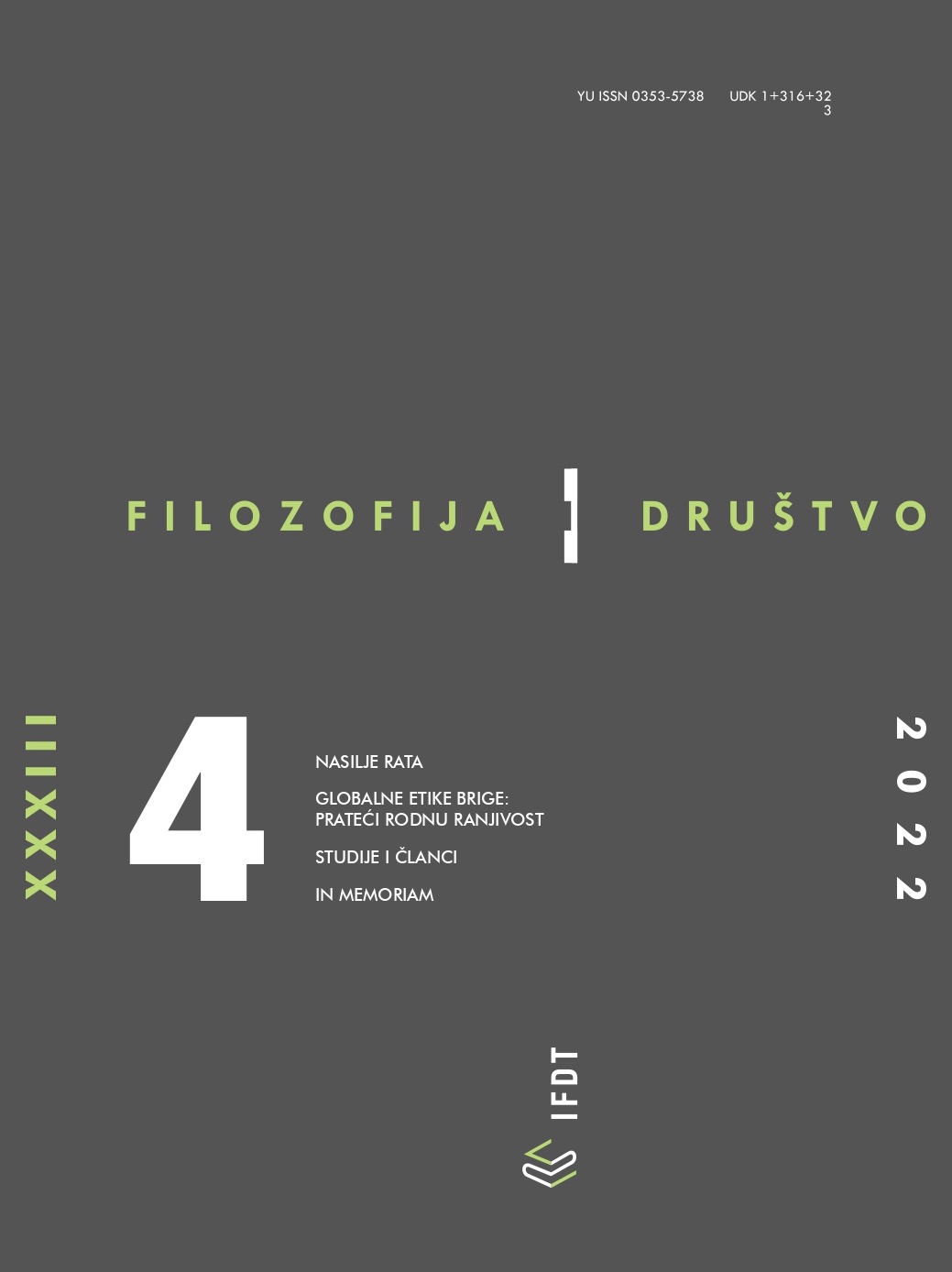ЭТОС ВОЕНАЧАЛЬНИКА В СОВРЕМЕННЫХ ВОЙНАХ (ПО ВОСПОМИНАНИЯМ КОМАНДУЮЩИХ ОГРАНИЧЕННЫМ КОНТИНГЕНТОМ СОВЕТСКИХ
ВОЙСК В АФГАНИСТАНЕ И ОБЪЕДИНЕННОЙ ГРУППИРОВКОЙ ВОЙСК В ЧЕЧНЕ)
Ethical Aspects of Military Leadership in Modern Warfare (Memoirs of the Commanders-in-Chief in Afghanistan and Chechnya)
Author(s): Andrey MenshikovSubject(s): Politics, Ethics / Practical Philosophy
Published by: Institut za filozofiju i društvenu teoriju
Keywords: ethics of war; ethos of military leadership; Limited Contingent of the Soviet Troops in Afghanistan; United Armed Force in Chechnya; moral dilemmas; war and politics; exit strategies
Summary/Abstract: While modern normative approaches to ethics of war (just war theories) stumble over theoretical aporia of legitimating “collective organized violence” such as the war, anthropological approaches to the practical ethics of the military servicemen focus on the lived moral experience and the enacted values of individuals who were placed in the situation of “total violence”. Drawing on the memoirs of two generals who were Commanders-in-Chief in Afghanistan (B. Gromov) and in Chechnya (G. Troshev), the article explores the ethos of military leadership in modern warfare. The article demonstrates that strategic planning of military operations is inseparable from political goals and, therefore, involves military leadership in reflection on whether political goals are legitimate, whether national (and international) civil society should give its support to the military, whether military means are the best option for solving the crisis, and whether there is a viable exit strategy. Both generals declare the fundamental principle of sparing as many lives of their troops as possible in achieving their military objectives. But this principle, in the first case, leads to various attempts at “freezing” hostilities between opposing forces, whereas in the second step it requires ultimate destruction of the enemy no matter the cost. Thus, the text argues that the ethics of war and the ethos of the military leadership are determined by the way their opponent is framed by the political leadership. In both generals’ view, military hostilities ultimately result from political failures.
Journal: Filozofija i društvo
- Issue Year: 33/2022
- Issue No: 4
- Page Range: 777-798
- Page Count: 22
- Language: Russian

